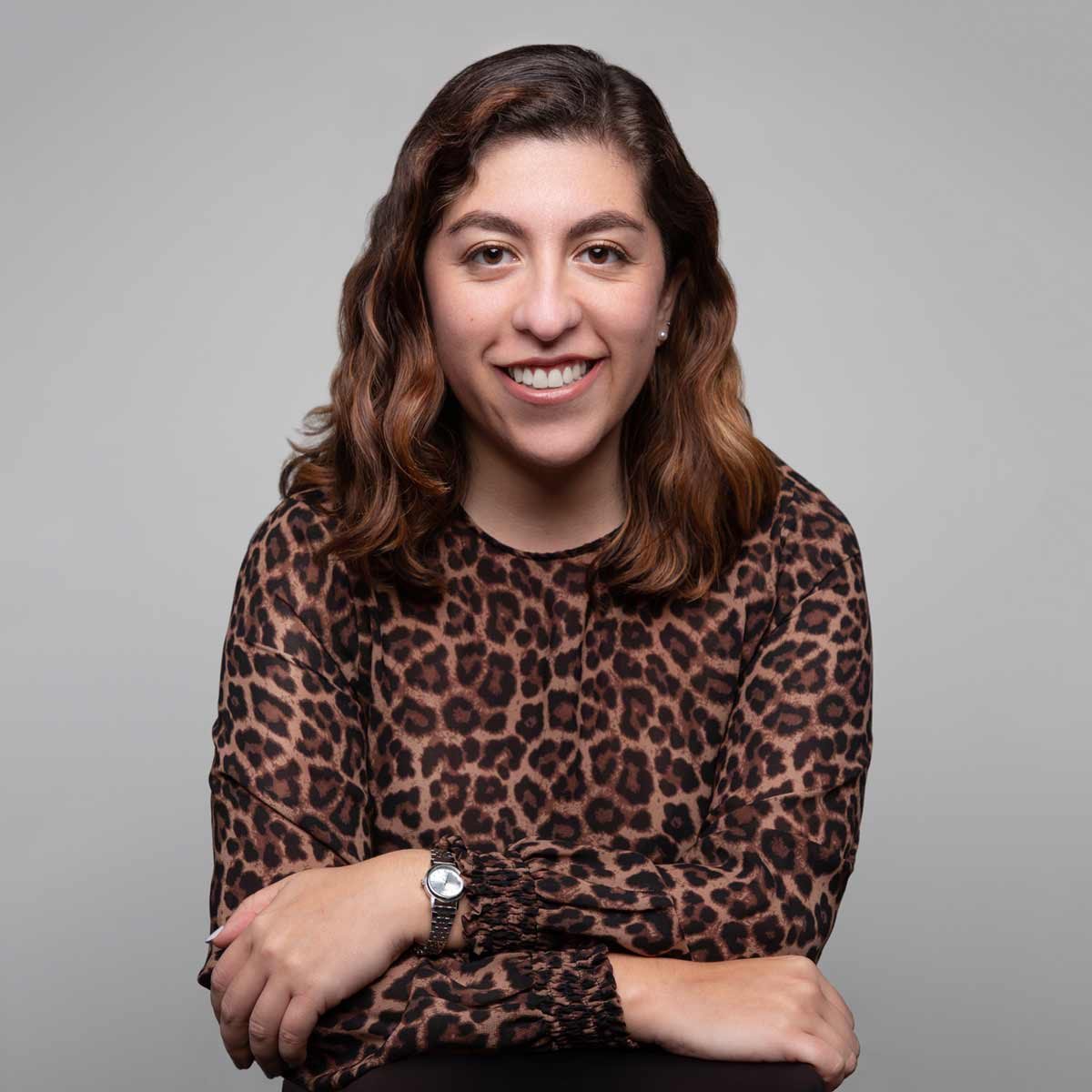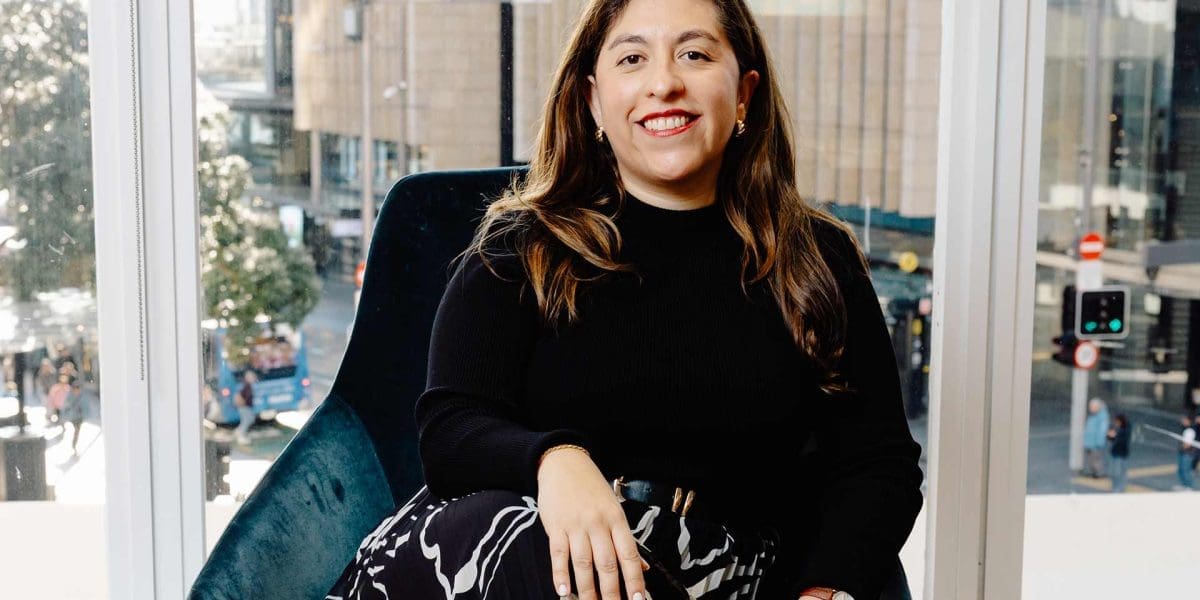Maria Jose Alvarez: The Business of Science, The Future of Venture
Some people spend years figuring out what they want to do. Not Maria Jose Alvarez.
“I was one of those weird 13-year-olds who knew exactly what she wanted to do with her life,” she says. “And I’m now doing it.”
Raised in a small rural town in southern Chile, Alvarez’s path would take her from running a biotechnology startup by 21, then on to New Zealand, where she’s now the Managing Partner of WNT Ventures, one of the country’s top deep-tech venture capital firms.
Her spark was lit early. “One of my mum’s friends had a kid studying biochemistry. I was snooping through their books and found an organic chemistry book about drug development and manufacturing. I was just in love with that. I knew I wanted to be that person who develops drugs.”
But as much as she loved science, she knew she wasn’t meant to be isolated in a lab. “Biochemistry was very solitary. I liked science, but I also liked maths, and people, and debate. Everyone thought I was going to be a lawyer. But I had this really strange moment, I was like, I want to be a technology broker.”
Alvarez explains the image she had in mind: “In my mind, they were mostly in the US, travelling with briefcases, selling patents for drug development. And I thought that was the dream job. I could do science, sell science, and travel.”
Instead of taking a traditional business route, she pursued biotechnology engineering. “Going to business school wouldn’t help me understand the developments of science. I purposely chose biotech engineering so I could understand both sides. That was always my goal.”
Alvarez took that goal seriously. While still at university, she co-founded VidaOx, a startup that turned winemaking waste, grape skins, pulp, and seeds into a high-antioxidant powder for use in cosmetics and food. “At the time, vineyards were paying trucks to take the waste across the Andes and burn it. It was legal, but crazy. Huge contamination, huge waste of potential.”
She and her classmates entered a university entrepreneurship competition and won. An angel investor on the judging panel offered to back them. Another university offered them desks in an incubator. She was 21. “It was met with resistance from my university. The dean of my degree at that time called me and said, ‘If you want to do business with science, you should have gone to business school. You’re wasting your time here.’ I remember that moment clearly.”
They persisted. “We raised capital, got some government funding, and ran the company for about five and a half years, all while I was doing my undergrad. We ended up partnering with the largest pasta manufacturer in the country. It was terrifying. It was exciting. And it was hard. It showed me what science could achieve outside of the lab.”
Behind the success was an experience she doesn’t sugarcoat. “It was exhausting and often overwhelming, the kind of rollercoaster you go through when you’re 21 and trying to figure it all out. Our investors were high-net-worth individuals, but they hadn’t backed science before. Expectations were mismatched. But it taught me lessons I still carry today: resilience, humility, and the importance of surrounding yourself with the right people.”
She got her first taste of media attention, too. “We were featured in a TV segment, I think it was even international, because it was still new in Chile that 21-year-olds were starting tech companies. And we bought into the dream, started hustling, getting press. But we kept hitting roadblocks.”

Eventually, she decided to walk away. “I knew it was time to pause. I felt I needed a break. I had a lot of learnings, and I thought, maybe there’s value in sharing them. Especially with other scientists trying to get their first thing off the ground.”
At the same time, an image from years earlier stayed with her, a New Zealand tourism ad she saw in 2009. “It was just this 30-second video. A family cycling along the beach, sunshine, and mountains. The tagline was ‘New Zealand: Great place to live.’ That was it. That was all it took.”
She sold everything and bought a one-way ticket. “I didn’t know anyone there. I arrived with nothing more than determination and a one-way ticket, but I knew I wanted to build a future here, and to help create the kind of ecosystem I wished had existed when I was starting out.”
She enrolled in the Master of Bioscience Enterprise at the University of Auckland, expecting a more developed venture scene than what she’d experienced in Chile. What she found surprised her. “It was tiny. A handful of people. One fund was one guy. Another fund was two guys. That was kind of it.”
But for Alvarez, the scarcity felt like an opportunity. “Things weren’t going to come to me. I needed to create them.”
She approached UniServices, the university of Auckland’s commercialisation arm. They didn’t have a job for her. “So, I volunteered. I said, ‘I just want to work here. I want to be around this.’” Within two months, she had a permanent role. She was promoted from analyst to manager and then senior manager. “My job was to scout and find the gems and help make them happen. That’s what I want to do. That was what I wished existed back when I was starting my company.”
Later, she joined NZGCP, a government co-investment fund, just as COVID began shutting the world down. “At one point, I was managing more than 50 companies. That’s not sustainable. But it gave me a crash course. It was great to do at speed.”
It also showed her what worked and what didn’t. “I saw the differences in how companies presented and how different funds worked. The patterns of what succeeded. What failed. What repeated. I stopped tracking them all; there were too many, but you start to see the same lessons again and again.”
WNT Ventures came into her life at the right time. “The mission, the vision, the values, they all lined up with where I saw myself and where I saw the country heading. I joined as a manager, and it was a no-brainer when they asked me to step into the partner role.”
Today, she co-leads investments across some of the most exciting frontiers of science, from sensors to synthetic biology, but what excites her the most is the people behind them.
“The first thing I ask myself is: Do I like this person? For me, it always starts with the person. Venture is about backing people who can carry a vision through years of uncertainty, and who I know I’ll be proud to stand beside through the highs and the lows. Then, do I see them being able to carry out their vision? Can I work with them for five to seven years? Can we disagree?”
She looks for founder-problem fit. “Sometimes it’s deep expertise. Sometimes it’s lived experience. But you can’t fake the connection to the problem.”
One thing that turns her off is ego. “There’s this perception that founders need to be superhuman. But I like people who know what they don’t know. People who can separate their identity from the company. Because when you tie your ego to the business, any critique feels personal. That’s dangerous.”
Alvarez is also sceptical of startup theatrics. “All jobs are sales jobs. But charisma only gets you so far. You can learn how to pitch. What matters is: can you actually build the company?”
Market validation, she says, is still the most underappreciated discipline. “We’ve seen founders hesitate to share their ideas. They’re scared of being misunderstood. They say, ‘Once I build it, you’ll get it.’ But the risk is you build something no one wants.”
She remembers specific investments where early conviction wasn’t based on certainty, but potential. “Every investment is a bet. But sometimes we fund teams to test an idea. If it doesn’t validate, that’s okay. We gave it a shot. But if it does validate, we double down.”
What matters is rigour. “You have to ask the hard questions. And you have to listen to the hard answers.”
She’s also very comfortable saying no. “If I don’t believe in it, I won’t fake it. I’ve helped some founders find other pathways or contacts, even if we’re not the right investor. But I won’t mislead anyone.”
Alvarez sees the capital she manages as a serious moral obligation. “Every dollar we invest is a dollar we’re not investing in someone else. I take that seriously. I come from a single-mum-teacher household. $600,000 is life-changing money to most people. In venture, some people talk like it’s nothing. I like to bring it back to reality.”
Alvarez also suggests we have an opportunity to be truly global. “The world isn’t just the US. Everyone says they’re going global, but that usually means one corner of California. Maybe Singapore. Maybe Sydney. But there’s India, China, Latin America. In Chile, we were allocating $200 million USD per quarter for proof-of-concept research. That was just government grants. Non-dilutive. There are fintech unicorns. Climate tech scaleups. And we still underestimate them.”
And while WNT’s portfolio covers companies at the cutting edge of deeptech and science, Alvarez jokes that her day “sometimes feels like endless emails, but every now and then, you get those impactful moments that remind you why you started.”
“I think that we are in this because we’re trying to make a difference and we’re trying to make things better and the world better. That’s the altruistic goal, you know, but then you need to break it into a thousand other steps, so the day-to-day is actually a lot of admin, but the overarching things are exciting and important.”
And according to Alvarez the best moments can be a long time in the making.
“When something you backed at idea stage years ago becomes real, when the founder brings in the device and you can hold it in your hand. That never gets old. We have one company making a breathing device. When we first invested, they just had data. Recently, they brought in the actual product. It looked like something Apple would make. To me, that is the part that is mind-blowing. And I would like to think that I contributed even this little bit to making that happen. That’s why I do this work, to help ideas that seem impossible at first become part of our everyday reality.”
